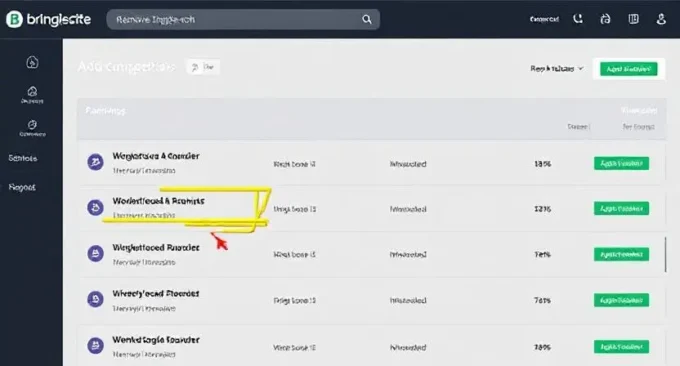In the rapidly evolving world of real estate investing, staying ahead of the competition often means embracing the latest advancements in technology. Automation has emerged as a game-changer, offering a plethora of benefits that can significantly enhance the efficiency, accuracy, and profitability of real estate investment ventures. From streamlined property management to sophisticated market analysis, automation tools are reshaping the landscape of real estate investing. This article delves into the myriad benefits of integrating automation into real estate investment strategies.
Streamlining Property Management Processes
One of the most immediate benefits of automation in real estate investing is the streamlining of property management processes. Traditional property management involves a multitude of tasks, including tenant communication, maintenance scheduling, rent collection, and financial reporting. Automation tools can handle these tasks efficiently, reducing the time and effort required by investors and property managers.
Automated property management systems can send rent reminders to tenants, facilitate online payments, and generate financial reports, providing real-time insights into the financial health of the investment. This level of efficiency not only improves operational effectiveness but also enhances tenant satisfaction, leading to lower turnover rates and higher occupancy levels.
Enhancing Market Analysis and Decision Making
Investing in real estate requires a deep understanding of market trends, property valuations, and investment risks. Automation tools equipped with advanced analytics capabilities can process vast amounts of data to provide comprehensive market insights, helping investors make informed decisions. These tools can analyze historical price trends, rental yields, and neighborhood demographics, offering predictions and recommendations based on data-driven insights.
The precision and speed of automated market analysis mean that investors can identify potential investment opportunities faster and with greater accuracy. This can significantly improve the success rate of investment decisions, leading to better returns and a more robust investment portfolio.
Optimizing Marketing and Lead Generation
In the competitive real estate market, effectively marketing properties and generating leads is crucial for success. Automation can play a pivotal role in enhancing marketing efforts and lead generation strategies. For instance, real estate drip campaigns are automated marketing strategies that send a series of targeted emails to potential clients over time. These campaigns keep prospects engaged by providing valuable information and updates, nurturing leads until they are ready to engage in a transaction.
Automated marketing tools can also help in segmenting audiences, personalizing communication, and tracking the performance of marketing campaigns. By automating these tasks, real estate investors can ensure consistent and effective marketing efforts, leading to higher lead conversion rates and increased sales.
Improving Efficiency and Reducing Costs
Automation introduces unparalleled efficiency to real estate investing, significantly reducing the time and costs associated with various tasks. By automating routine and repetitive tasks, investors can focus on strategic aspects of their business, such as expanding their investment portfolio or improving customer service. This shift in focus can lead to more significant growth and profitability.
Furthermore, automation reduces the likelihood of human error, which can lead to costly mistakes in property management, financial reporting, and market analysis. By relying on automated systems, investors can ensure greater accuracy in their operations, further enhancing the profitability of their investments.
Facilitating Seamless Transactions
Automation significantly simplifies the process of conducting real estate transactions, making them faster and less prone to errors. Automated systems can handle various aspects of transactions, from document preparation and electronic signatures to compliance checks and closing processes. This not only speeds up transactions but also enhances the security and legality of the dealings, ensuring all necessary protocols and regulations are followed meticulously.
By reducing the manual workload associated with transactions, automation allows real estate investors to handle more deals simultaneously, increasing their operational capacity. This scalability is crucial for growing a real estate investment business, as it enables investors to capitalize on more opportunities without proportionally increasing their workload or operational costs.
Enhancing Customer Experience and Engagement
In the real estate investment sector, customer experience can significantly influence success. Automation contributes to superior customer service by ensuring timely and personalized communication with clients, tenants, and other stakeholders. Automated CRM systems can track client preferences, history, and feedback, enabling tailored interactions that make clients feel valued and understood.
Furthermore, automation facilitates 24/7 customer service capabilities through chatbots and automated response systems, ensuring that inquiries and concerns are addressed promptly, regardless of the hour. This level of responsiveness and personalization enhances client satisfaction and loyalty, which are crucial for building a reputable and sustainable real estate investment business.
Driving Data-Driven Strategic Growth
In the realm of real estate investing, strategic decisions must be grounded in solid data to ensure long-term success and growth. Automation provides investors with access to real-time data and analytics, offering insights into performance metrics, market trends, and investment opportunities. This data-driven approach enables investors to identify successful strategies, areas for improvement, and emerging trends that could impact their investment portfolio.
By leveraging automated analytics tools, real estate investors can make more informed decisions about property acquisitions, divestments, and portfolio diversification. This strategic advantage allows investors to adapt to market changes swiftly and capitalize on opportunities, driving sustainable growth and competitive advantage in the real estate market.
By facilitating seamless transactions, enhancing customer experience and engagement, and driving data-driven strategic growth, automation further solidifies its role as a transformative force in real estate investing. These additional benefits complement the core advantages discussed earlier, offering a comprehensive overview of how automation can revolutionize real estate investment practices for the better.
Conclusion
The benefits of automating real estate investing are undeniable. From streamlining property management and enhancing market analysis to optimizing marketing efforts and improving overall efficiency, automation offers a comprehensive solution for investors looking to maximize their returns. As the real estate industry continues to evolve, integrating automation into investment strategies will be key to staying competitive and achieving long-term success. By embracing the power of automation, real estate investors can unlock new opportunities for growth and profitability in an increasingly dynamic market.















Leave a comment